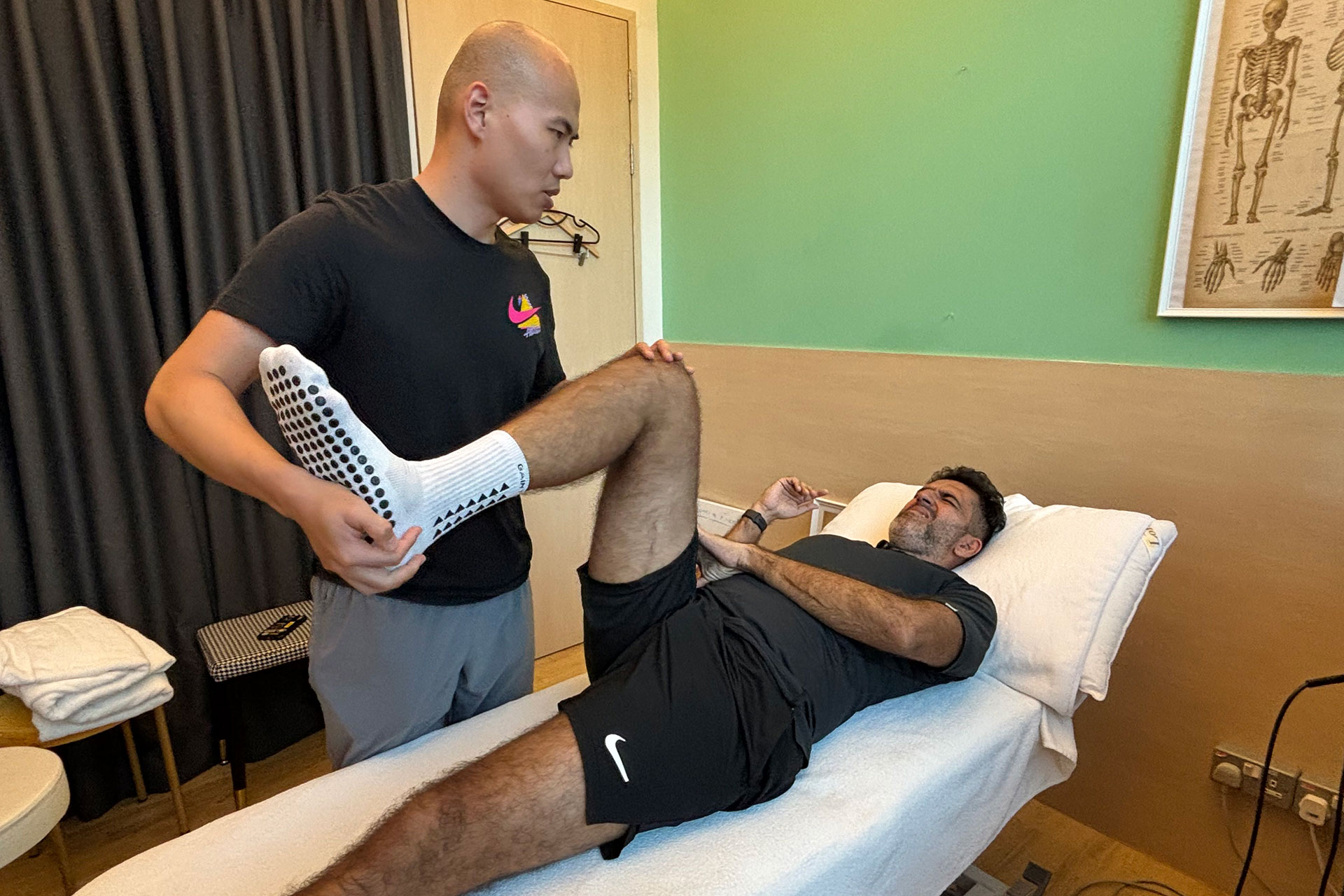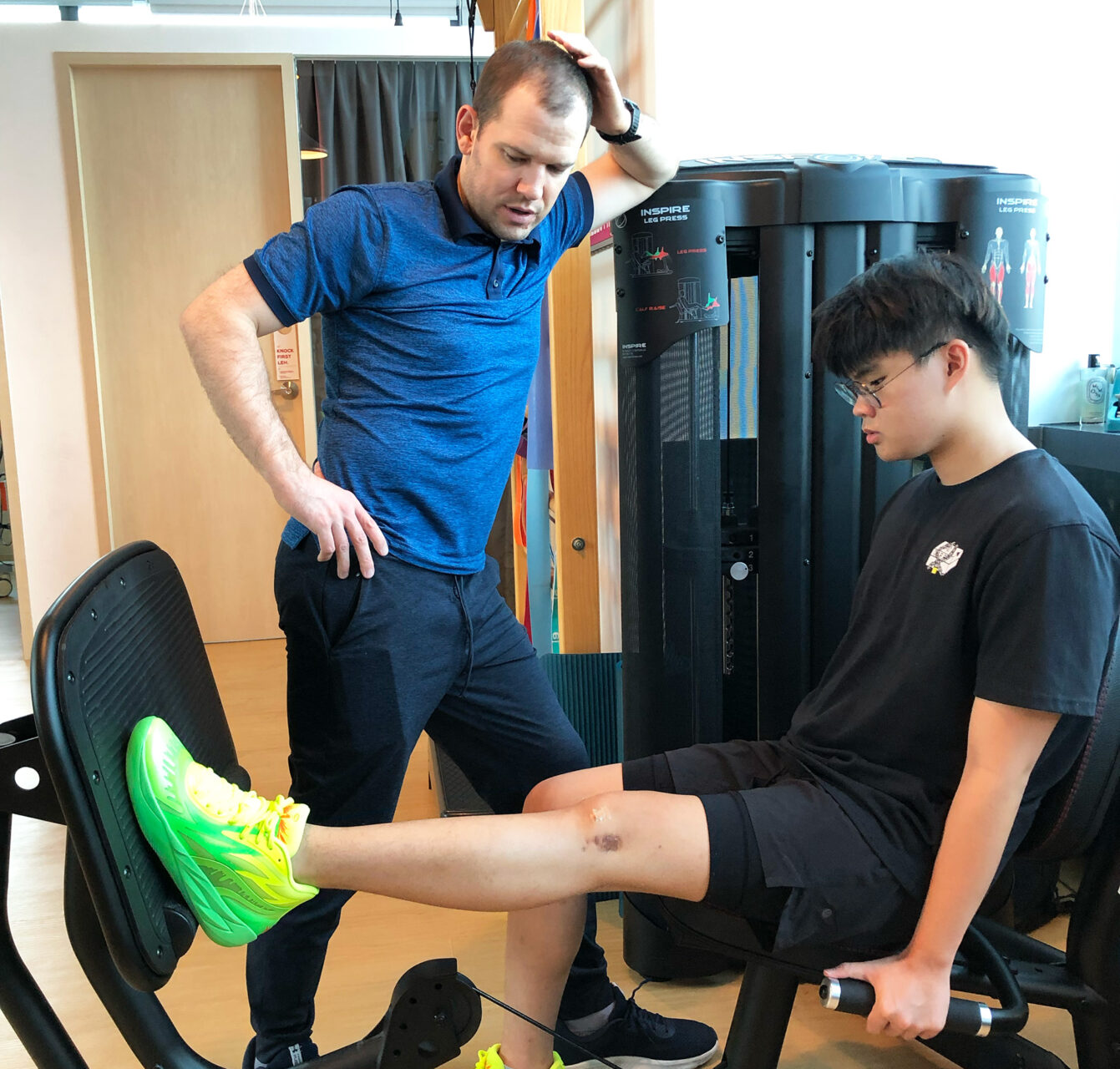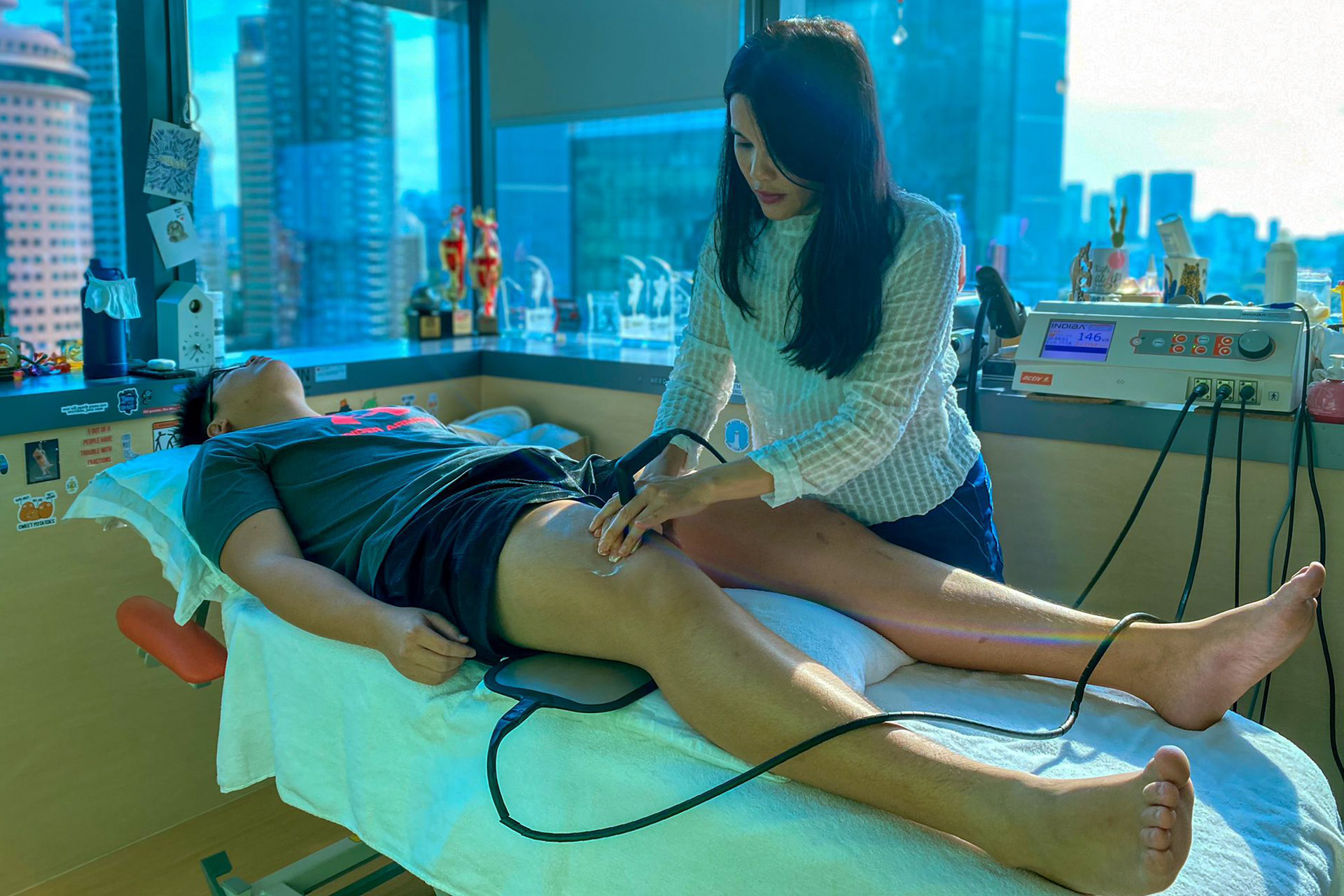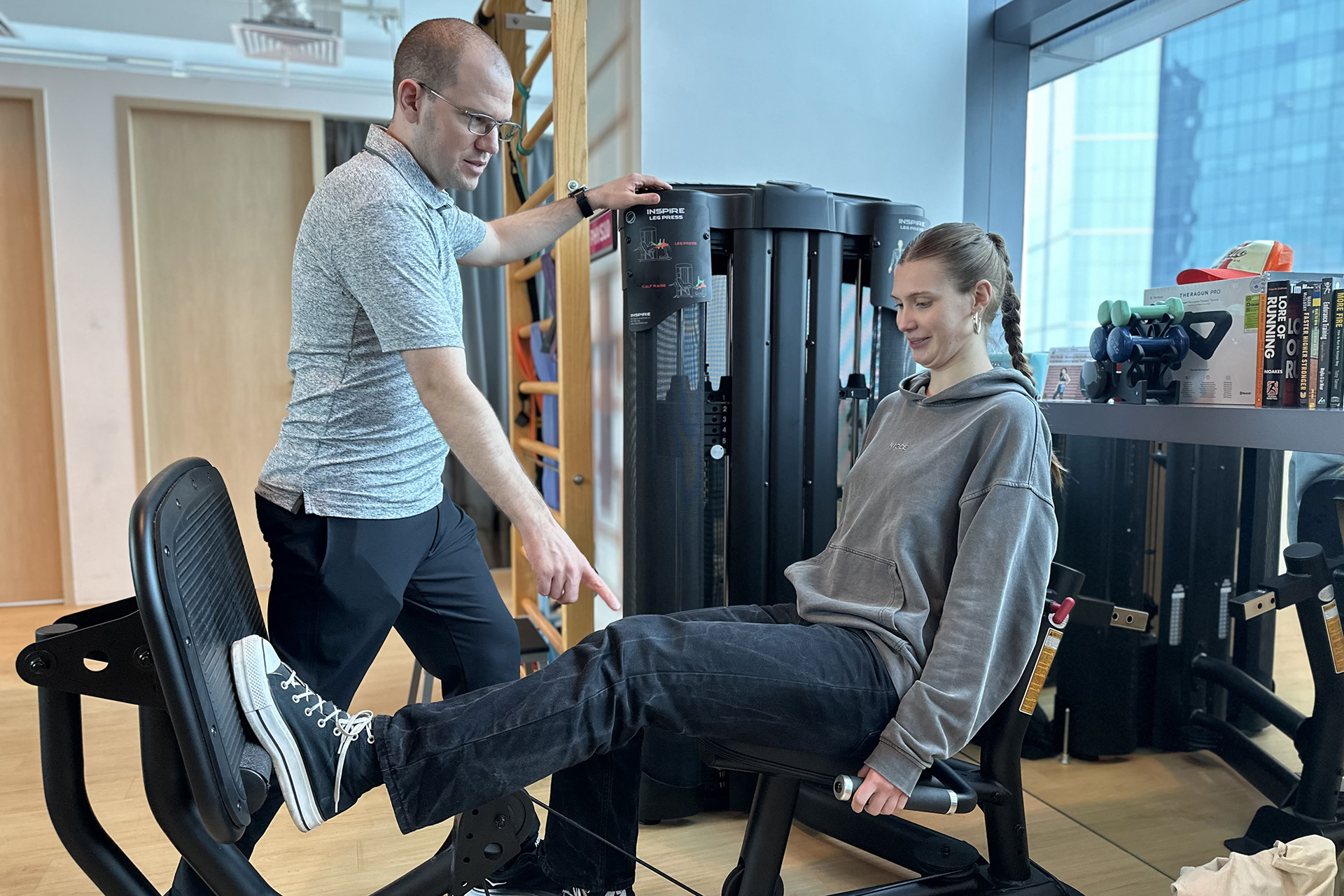Knee stress fractures are a silent but dangerous foe for runners. Unlike the dramatic onset of acute injuries, these tiny, hairline cracks in the bone develop gradually, their whispers of discomfort often dismissed or misinterpreted. We all know a runner who is used to pain in their knee but chooses to dismiss it without cause. Yet, these seemingly minor injuries can escalate into significant mobility and athletic performance barriers if left unaddressed.
For the dedicated runner pounding the pavement of East Coast Park, the weekend warrior tackling the steps of Fort Canning, or even the office worker simply walking the urban landscape of Singapore’s CBD, knee stress fractures can significantly hamper their way of life. These injuries demand medical attention and a nuanced understanding of the body’s response to repetitive stress and the delicate balance between activity and recovery.
Unmasking the Knee Stress Fracture
A knee stress fracture occurs when the bone experiences repetitive force greater than its ability to repair and remodel. Unlike traumatic fractures resulting from a single, high-impact event, stress fractures develop over time, often due to overuse or changes in activity levels.
A major problem with this type of injury is that knee stress fracture symptoms are easily overlooked or confused with other knee ailments. Key indicators include:
- Localised pain that worsens with activity and improves with rest
- Swelling around the affected area
- Tenderness to touch at a specific point on the bone
- Pain that intensifies over time if the activity is continued
Knee stress fracture pain typically presents as a deep, aching discomfort rather than the sharp, acute pain associated with other injuries. This characteristic often leads to delayed diagnosis, as individuals may initially attempt to “push through” the discomfort. This is especially so for runners who are used to having their adrenaline help them work through the pain.
Common sites for knee stress fractures include the patella (kneecap) and the proximal tibia (the upper part of the shin bone). However, they can occur in any bones of the knee joint complex.

The Path to Diagnosis and Treatment
The key to successful knee stress fracture treatment is an accurate diagnosis. Without that, it’s hard to know which part of the knee joint has been affected. So, every diagnosis starts with a robust clinical assessment and subsequent imaging studies.
At HelloPhysio, our experienced physiotherapists conduct thorough evaluations, considering your medical history, activity patterns, and specific symptoms. While X-rays may not always reveal early-stage stress fractures, MRI or bone scans can provide more definitive diagnoses.
Knee stress fracture treatment typically follows a conservative approach, with the primary goals of pain management and creating an environment conducive to bone healing. A stress fracture alone will rarely require invasive treatment. Treatment involves relative rest, temporarily avoiding activities that exacerbate symptoms while maintaining overall fitness through low-impact exercises.
Physiotherapy plays an important role in recovering from knee stress fractures and preventing future injuries. At HelloPhysio, our comprehensive approach addresses the injury and factors contributing to its development.

The benefits of physiotherapy in managing knee stress fractures are multifaceted:
- Pain Management: Utilising various modalities to alleviate discomfort and control inflammation.
- Biomechanical Assessment: Identifying and correcting movement patterns that may have contributed to the injury.
- Strength and Flexibility Training: Developing a balanced musculoskeletal system to absorb better and distribute forces.
- Gait Analysis: For runners and athletes, analysing and optimising running or sport-specific mechanics.
- Progressive Loading: Safely reintroducing weight-bearing activities to stimulate bone remodelling without overloading.
Our physiotherapists design personalised treatment plans that evolve with your progress, ensuring a safe and efficient return to your desired activities.
Groundbreaking Therapies to Accelerate Your Recovery
At HelloPhysio, we also offer a range of cutting-edge therapies to complement traditional physiotherapy and potentially accelerate your recovery from knee stress fractures.
One such innovative treatment is INDIBA® Activ Therapy, a non-invasive approach that harnesses radiofrequency energy to stimulate cellular activity. This therapy can be particularly beneficial for knee stress fractures, as it aids in pain management, reduces inflammation, and promotes tissue repair, ultimately creating an optimal environment for bone healing.

While INDIBA® Activ targets the cellular level, Shockwave Therapy can address the broader musculoskeletal implications of your injury. Although primarily renowned for its effectiveness in treating soft tissue injuries, Shockwave Therapy has shown promising applications in managing various aspects of knee stress fracture recovery. It’s especially valuable in addressing the associated muscle tension or trigger points that often develop due to altered movement patterns during the healing process.
Prescribed exercises complement these advanced therapies as a part of your rehabilitation. A carefully crafted exercise program is crucial for restoring strength, flexibility, and function while respecting the delicate healing process of the bone. Your dedicated physiotherapist will guide you through a progressive series of exercises designed to target your specific needs and goals, gradually increasing the load on the affected area and ensuring a safe and effective return to full function.
As you progress through your rehabilitation, the focus gradually shifts from recovery to prevention. Our goal at HelloPhysio is to help you heal from your current injury and equip you with the knowledge and tools to prevent future occurrences.
Education is the key to long-lasting recovery, so you understand the principles of your plan and how important progression is. This plan will also address any underlying biomechanical issues that may have contributed to the stress fracture and develop a comprehensive strength and conditioning program tailored to your activities and goals. We will also offer guidance on nutrition and lifestyle factors that support bone health to best support your recovery.
By taking a holistic approach to your recovery and future injury prevention, we aim to help you return to your activities with greater resilience and confidence.
Schedule an Initial Assessment at HelloPhysio
Navigating recovery from a knee stress fracture can be challenging, but you don’t have to face it alone. At HelloPhysio, we combine years of experience, cutting-edge treatments, and a passion for personalised care to guide you through every step of your recovery process. Contact HelloPhysio today to schedule a thorough assessment and take the first step towards reclaiming your mobility and confidence.

